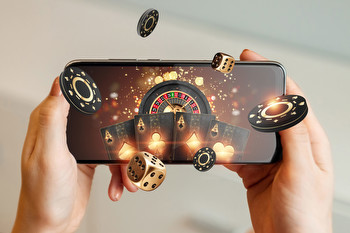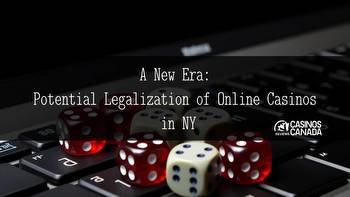The Potential for Casino Development in Vermont

Vermont, a state well-known for its gorgeous scenery and abundance of outdoor activities, is taking steps to embrace the profitable business of sports betting online. It might pave the way for future growth in the casino industry. The change coincides with changing attitudes toward gambling and its ability to boost public coffers and the economy.
Introduction to Online Sports Betting in Vermont
Recently, Vermont has embarked on an ambitious journey by legalizing online sports betting. The state's approach, characterized by a digital-only betting landscape, signals a progressive step towards integrating more comprehensive gambling services, including possible casinos in the future.
Governor Phil Scott's signing of the H.127 bill into law marks a significant milestone in this journey. It positions Vermont alongside other U.S. states that have embraced online sports wagering. This legislative move aims to capture a slice of the booming sports betting market, which is projected to reach a remarkable handle across the United States.
Current State of Sports Betting
Vermont's entrance into the online sports betting market has been marked by a strategic approach, emphasizing a selection process focused on integrity, experience, and the potential for responsible gambling. As of January 11, 2024, the state has welcomed three major operators: FanDuel, DraftKings, and Fanatics. Each brings unique offerings to the table.
FanDuel is celebrated for its user-friendly interface and same-game parlay feature, appealing to both new and seasoned bettors. DraftKings distinguishes itself with a sleek design and a strong focus on live betting and betting pools, encouraging community amongst users. Meanwhile, Fanatics enters the scene with innovative features like FanCash, enhancing the betting experience through rewards and incentives.
The selection of these operators followed a meticulous scoring process, touching upon numerous criteria from financial stability to ethical considerations, ensuring that Vermont's sports betting ecosystem is robust and secure. The careful planning extends to the range of betting options available, allowing wagers on various sports, from professional leagues to more niche interests like drone racing and competitive tag. It's a dynamic mix that reflects the broad interests of Vermont bettors and the state's commitment to providing a comprehensive and engaging betting landscape.
This venture into sports betting is poised to make a significant economic impact, with projections estimating $7 million in tax revenue for 2024. Such financial prospects, combined with a forward-thinking regulatory framework, position Vermont at the forefront of modern sports betting, setting a precedent for how states can introduce and manage this form of entertainment responsibly and effectively.
Potential for Casino Development
Vermont's approach to online gambling, especially casinos, remains conservative and cautious, with current laws not supporting the legalization of online casinos within the state. Despite this, the availability and appeal of mobile and online betting platforms, like Bovada and BetOnline, underscore the potential for a vibrant digital gambling ecosystem in Vermont.
The Best U.S. Real Money Online Casinos in the state offer a comprehensive array of gaming options, from thrilling slots to classic table games. They ensure a rich and varied gambling experience that caters to all player preferences. Bovada, for instance, is renowned for its broad spectrum of slot and table games, complemented by a mobile interface that maximizes user-friendliness.
Economic Implications
The economic implications of introducing casinos in Vermont extend beyond direct revenue from gambling operations. Casinos could act as catalysts for local economic development, stimulating growth in the hospitality, entertainment, and retail sectors. Other states' experience suggests that casinos can contribute significantly to local and state economies, offering a multifaceted approach to economic revitalization.
Moreover, the success of online sports betting, which includes partnerships with established operators and a focus on maximizing sustainable, long-term revenue, provides valuable insights into how casinos could similarly benefit Vermont. The state's proactive stance on sports betting, including detailed market analyses and revenue-sharing models, indicates a thoughtful approach to gambling that prioritizes economic gain while mitigating social risks.
Conclusion
Vermont's venture into legal online sports betting marks the beginning of a new chapter in the state's gambling history. While the immediate focus is on establishing a successful sports betting market, the potential for casino development looms on the horizon.
The path forward requires careful consideration of regulatory, economic, and social factors. Still, the prospects for casino development in Vermont appear promising, potentially significantly impacting the state's economic development and entertainment offerings.

































